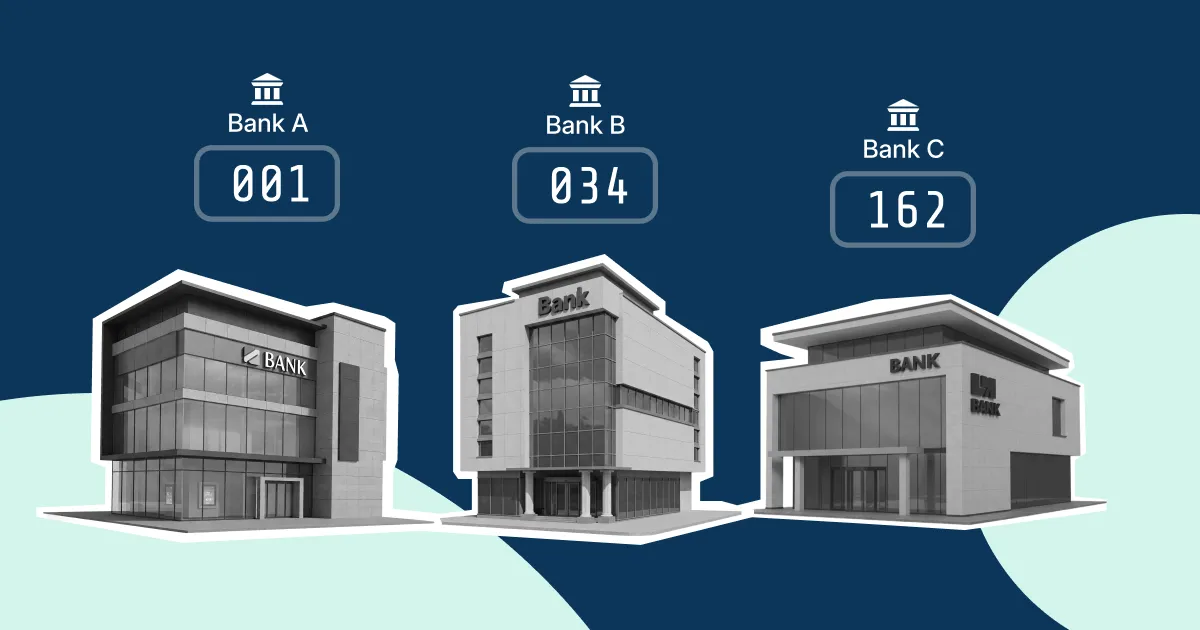Summary
In businesses, managing and paying invoices often seem like a small task. Invoices arrive, they're recorded, the company pays, and that's that. However, in reality, it’s often more complicated. Consistent cash flow is the key to running a successful business. And if your company works with multiple vendors, managing invoices and making payments can be quite challenging. One wrong move opens the entire structure's possibility of crashing down.
What do payment delays and late payments actually mean?
Technically, payment delay refers to the amount of time a company takes to pay a bill after receiving it. A late payment or overdue payment occurs when a payment is not received by the due date. In general, when one talks about a delay in payments, they are referring to overdue payments. As a result, these terms are interchangeable.
Late payment of invoices can have far-reaching consequences. A late fee can balloon out of control. Keeping up with invoices may also be challenging in this situation. Compliance and auditing issues may arise. Last but not least, late invoice payments can damage vendor relationships. Consequently, when it counts, you can find yourself in an unfavourable bargaining position.

What are the main reasons for late payments?
One of the most prevalent issues in the business world is delayed vendor payments. If you have yet to experience it while running your business, it may be because of one of these three reasons. Either you have a top-notch management team, you have a steady cash flow or a reasonably manageable vendor list or perhaps, your business is still growing, and you haven't reached that point of complication yet.
However, knowing potential challenges will help you identify and avoid complications, no matter where you are on your journey. Keeping your business running smoothly is critical, so let's examine the most significant hitches that cause vendor payment delays.
Lack of visibility into vendor spending
Each added tool, subscription, and partnership adds another vendor to your business portfolio. As the vendor list grows, keeping track of renewals and duplicate payments becomes more challenging. Two teams from different departments occasionally sign up for the same service or tool, causing another reason for the payment delay. This is more likely to occur if different cards and accounts are used to make purchases. This, however, leads to additional costs for the company and consequently to re-evaluating records and funds, which delays the payment process.
Frequent late payments from clients
The occasionally delayed invoice during the holidays is one thing, but when payments are chronically delayed from your client, it can negatively affect your cash flow and consequently affect your vendor payments. This can be a severe issue, especially if your business has low or no reserves or credit to fall back on.
Incorrect invoice details and workflows
Another widespread reason for overdue payments would be incorrect information. There could be an error in the date or address, or incorrect or missing line items, resulting in the numbers not adding up. When you are handling multiple invoices at once, identifying, correcting, revising and processing them takes time and effort, causing a delay in vendor payments.
Interruptions & security concerns
Generally, this happens when your business card is compromised by fraud or security issues.
Let's say you have all your subscriptions neatly organised onto one card, but that card is compromised. It takes a few days for your card issuer to track and refund the money. However, they now must send you a replacement. The result of this is a delay in payments from your end to your vendors. Additionally, taking the time to update your billing information and connecting with all your vendors will now require hours of your time.
Centralised payments may be essential to gain control over your business finances, but security issues clearly, pose a threat.
How do late payments affect your vendor?
Vendors, especially small businesses, feel the effects of overdue payments in many ways. However, they are not the only ones who suffer. It is also possible for you as clients to suffer the consequences of late payments. Here are some of the potential downsides of late payments:
A dent in vendor relationships
Overdue vendor payments can cause severe damage to business relationships, which is a major disadvantage. As a business, it is imperative to understand that your vendors have liquidity considerations. Not respecting that may cause you to risk damaging your reputation, impairing or even ending your relationship with your vendors.
Vendor cash flow difficulties
A vendor who relies heavily on your payments may become financially restricted if payments are not made on time. They may suffer; as a result, thereby undermining their own operations, as, ultimately, even one vendor's failure would negatively affect your business as a whole.
Ripple effect on the supply chain
Furthermore, late payments can cause problems for more than just your immediate vendor. There is a complex, interconnected network of businesses in supply chains that are all interdependent in some way. Missing payments to one vendor may cause a domino effect of overdue payments that can affect the whole supply chain, pushing a cash shortfall to the very end. Your vendors may also have difficulty managing their suppliers, resulting in supply chain disruptions.

Undue stress on employees
Late payment to vendors has two significant disadvantages: low employee morale and high-stress levels. These are generally overlooked, but they may turn into something very serious. Besides, this problem affects not only the employees of your vendor but also those of your own company. It falls on relationship managers of either company to handle damage control when businesses default on payments. As a result, they are expected to initiate sensitive discussions with potentially disastrous consequences if negotiations deteriorate.
Why vendor management is important during payment delays?
Everything seems good when things are running smoothly, it’s when there is a breakdown, is your vendor management process and vendor relationships get tested. When you realize that there is going to be a payment delay, it is important you handle the situation with transparency, humility & with clarity. If not handled carefully, your reputation can get tarnished, putting your business at a disadvantage. Here’s why:
- Strain in the relationship: Late payments might cause your vendor to lose trust and prioritise other clients over you. And as you know, once trust is lost, it is very difficult to regain it.
- Negative impact on other relationships: Other vendors may refrain from doing business with you, or they may continue the business partnership but on less favourable terms and pricing.
- Influence business prospects: Keeping both your client list and vendor list growing is key to growing your business. But sometimes, when potential clients hear about your poor vendor management, they may contemplate associating with your company.
During a crisis like overdue payments,a vendor management system can prove to be really helpful. A robust vendor management system can easily help you examine the payment flexibility you have with each vendor based on their contract terms. It can also help you identify which vendors should be given the highest preference based on factors such as dependence, performance, late fees, etc. This will help you make a more informed decision about how to proceed.
How to manage vendors when payments are overdue?
It goes without saying that you should pay your vendors on time. However, at times when you run out of cash, proper vendor management provides insights that could help you manage vendor payments efficiently. Here’s what you can do:
1. Prioritize vendors
A proper vendor management system will help you identify which vendors are essential to your day-to-day operations. Once you know that, ensure you pay them first since paying them is critical to your business's survival.

2. Hold off lower priority vendors
Although this may seem unfair and against your business ethics, it is crucial to ensure you hold off paying vendors who are not critical to your operations or who do not penalize overdue payments.
3.Communicate
Always keep the lines of communication open, no matter what you decide. Even a simple delay payment email would do. This way, you reassure your vendors that payment will be made, but it may take longer than expected. Maintaining a healthy relationship with your vendor would be easier this way.
4. Discuss partial payment
A partial payment is when you pay a portion of the invoice's total amount. Doing this will also reassure your vendor that you intend to pay the remaining balance but with a delay. Consequently, you may also ensure that you retain your vendor's services even during this crisis. Partial payments may, however, require prior discussion.
What are ways to avoid late vendor payments?
This issue must first be acknowledged in order to be addressed. There is no doubt that accounts payable (AP) is critical. A system must be implemented to prevent overdue payments. We can then integrate these four tasks into your vendor management process to speed up the payment of invoices.
Reduce manual intervention
The majority of vendor invoice management mistakes can be attributed to human error. With more and more vendors added to the list, it becomes increasingly difficult to manage them efficiently. Instead, look for options to automate your accounts payable process. Platforms such as Aspire help you reduce your AP workload by 50%, eliminate errors and streamline processes. A better workflow can definitely lead to better cash flow.
Gain clarity with centralized payments
Keeping track of all your spending and receipts from vendors is the easiest way to gain visibility. It becomes easier and more efficient to manage your company's finances with proper payment optimization. Make sure the payment system you choose allows multiple payment methods.
Improve co-ordination across multiple departments
Multiple departments handling the same task, such as managing invoices, may result in something being missed or misplaced. There is even the possibility of duplicate payments if they are not managed properly. Communication and coordination between departments are therefore essential.
Track your invoice payments closely
Sometimes payments are made immediately, but other times they are delayed. There are times when you are so eager to settle an outstanding payment, and due to some internal miscommunication, you end up paying the same twice. This may then cause a delay in payments to other vendors. This is why tracking invoices and payments are of the utmost importance. Proper tracking and payment optimisation prevent these mistakes and save your company time and resources.
Autopay bills
Vendor invoices, such as rent and retainer payments, can be automated in many cases. If the amount doesn't fluctuate much, you can schedule invoice payments instead of keeping track and manually paying each one.
Estimate future payments
Rather than waiting for invoices to arrive, you can use your invoice payment history to estimate when and how much you must pay each account. Data collected in real-time can assist you in estimating future payments to a particular vendor, resulting in better business decisions.

So, what should be your next step?
A proper vendor management system is a key component to the success of any business. It will help you maintain a vendor database, keep track of terms and conditions, and document the risks involved. Additionally, it will provide insight into the vendor's performance and ensures they are meeting your business requirements. On top of that, the vendor onboarding process and administrative tasks will be defined and simplified.
With platforms such as Aspire, you can manage all vendor invoices and vendor payments in one place. Rather than guessing how much you owe and when you owe it, you get a dashboard that displays the history, present, and future estimation of your debt towards each vendor. Automation of expense reporting, bill payments, and real-time spend alerts will help simplify and manage your business expenses. Furthermore, automating your financial workflow using direct integrations can also help you save time, simplify your bookkeeping, and manage all your accounting needs.










%201.webp)


.webp)